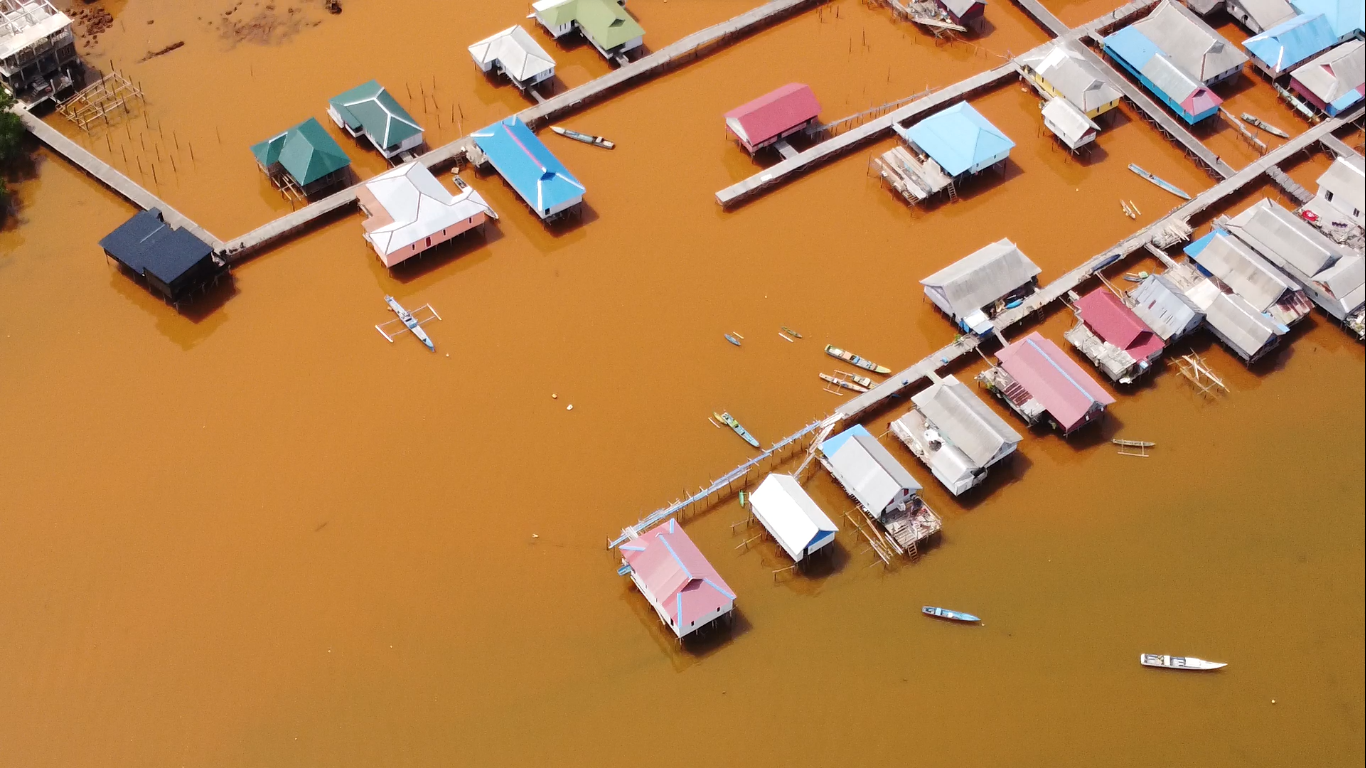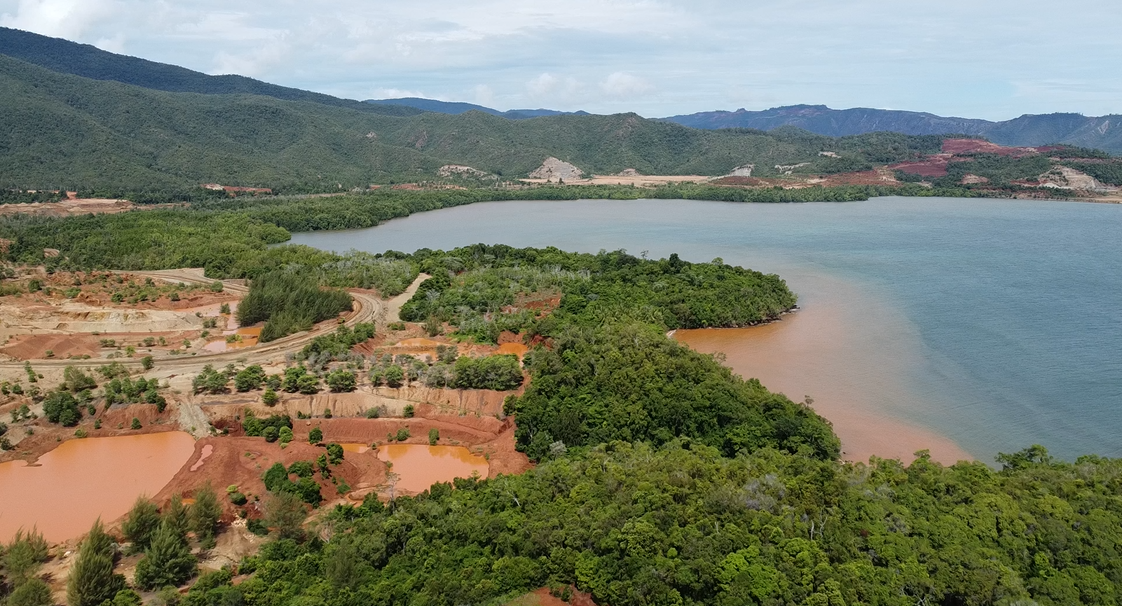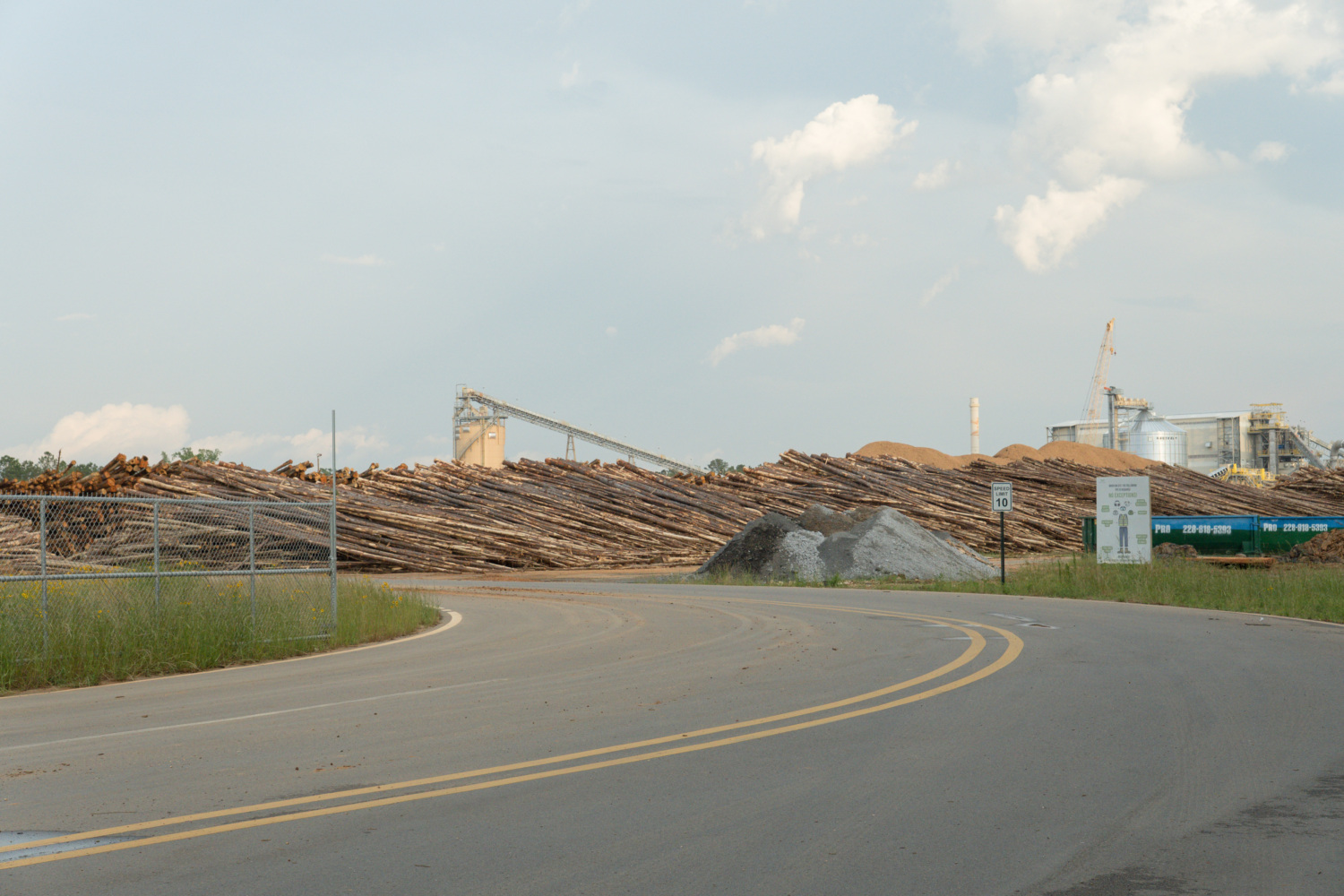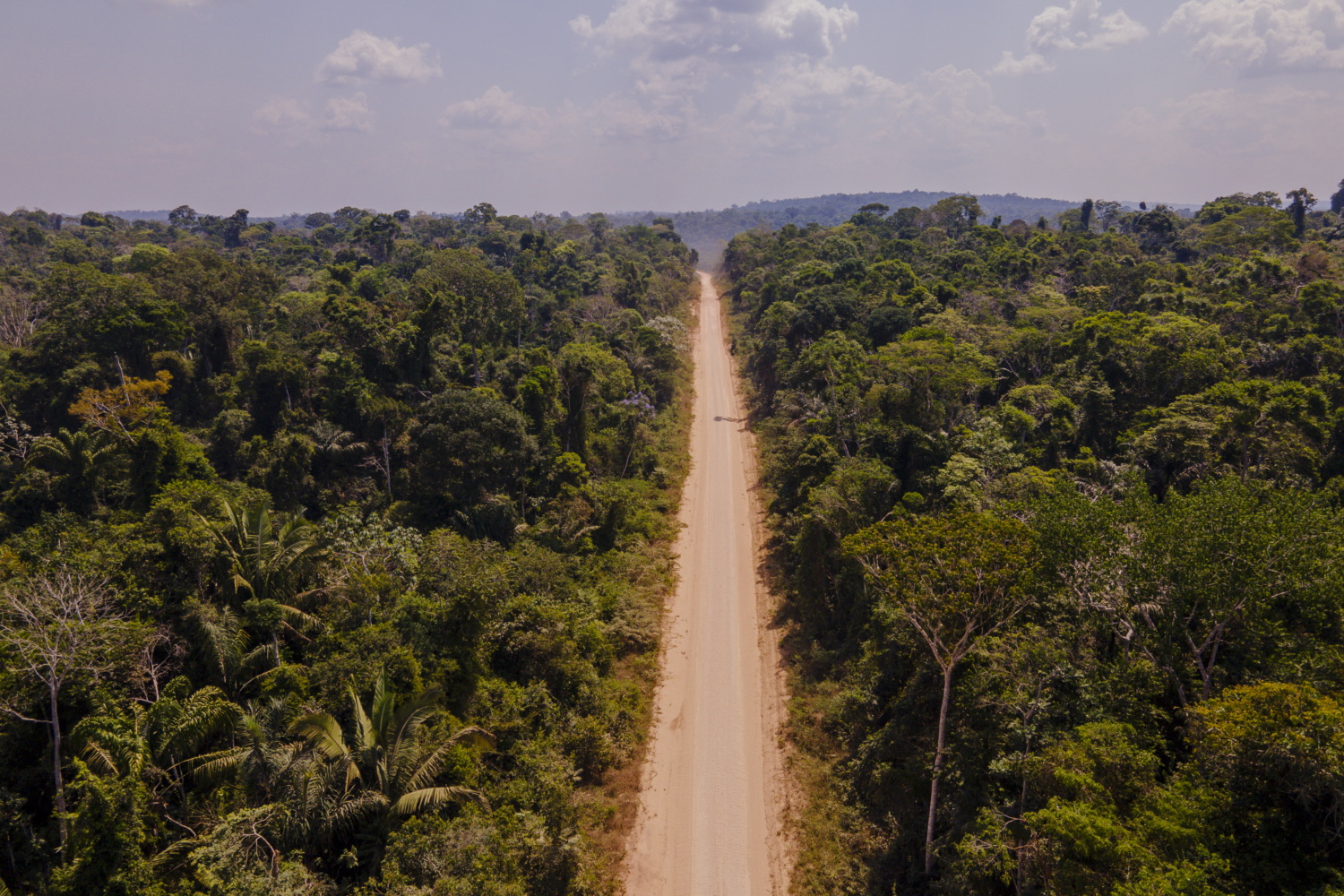
Nickel industry costs lives and livelihoods in Indonesia’s last nomadic sea tribe
April 16, 2024, Washington D.C.
Updated May 1, 2024
New Mighty Earth report reveals impact of likely illegal mining and rampant deforestation driven by global automakers demand for EV batteries.
Nickel Report
Mighty Earth’s new report, “From Forests to Electric Vehicles,” examines the environmental cost of nickel mining in Indonesia, home to the world’s largest reserves of nickel.
Read The Report
The Bajau people are the last nomadic sea tribe in the world, but their ancient way of life is under threat. “From Forests to Electric Vehicles,” a new report by Mighty Earth reveals the deadly impact of nickel mining on the Bajau community of Kabaena island off the coast of Sulawesi, where three children have drowned in the murky, nickel-contaminated waters.
Combining deforestation alerts and on-the-ground investigations, we found that nickel mining companies have illegally cleared Protection Forests and Production Forests across Indonesia, and did not use FPIC (Free, Prior and Informed Consent) to consult local communities in Kabaena. With upwards of 13 permits for nickel concessions, almost no corner of the island has been spared. Deforestation driven by the nickel industry exacerbates flooding of the Bajau’s traditional stilted homes.
One resident of Baliara village, one of the most densely populated Indigenous Bajau communities in Indonesia, said:
“When it rains the contaminated water comes down from the mined areas into our community, bringing death and health problems. Three children drowned between 2021 and 2023 and many more suffer itching and blistering caused by the red sea water. We cannot allow our children to swim in the sea anymore; their childhood is being stolen and they are being deprived of a life skill crucial for survival on an island community.”
Renowned as free divers, the Bajau rely on subsistence fishing, taking only what they need to feed their communities, but they are venturing further out to sea to escape the muddied waters. Without any adequate compensation, livelihoods are suffering and to make ends meet, some islanders have become nickel miners.
Accelerating deforestation
The report by Mighty Earth in collaboration with Brown Brothers Energy and Environment LLC identified 6115 hectares of forest loss alerts within 329 Indonesian nickel concessions across Indonesia in 2023 (see full data here). Using high-resolution RAAD (Radar for Detecting Deforestation) alerts, the open-sourced alerting system allows for the detection of forest loss every six to 12 days. The data directly ties these nickel concessions to Chinese battery producers such as Tsingshan and Samsung and to global EV manufacturers including Ford, Tesla, BMW, Mercedes Benz, Toyota and Hyundai.
Key Findings:
- Conservatively, Indonesia’s nickel mines have cleared nearly 80,000 hectares of forest to extract nickel.
- More than half a million additional hectares of Indonesian forest are within nickel concessions, putting them at risk for deforestation.
- The rate of deforestation is likely accelerating with RADD alerts showing more than twice as much forest clearance in 2023 than alerts showed in 2020.
- The investigation uncovered potential illegality in some of these concessions.
- At least three of these concessions have cleared Protection Forests without the prior exemptions that would have allowed them to do so legally.
- Six have strip-mined within 100 meters of the ocean, which is, at best, a legally contested practice.
- Five of the top 25 deforesting nickel mines have cleared 2,654 ha of Production Forest without the legally required Borrow and Use Permit (more recently known as a Forest Area Use Permit).*
Amanda Hurowitz, Mighty Earth’s Senior Director of Forest Commodities said:
“The unchecked deforestation in Indonesia has tragically cost young lives and further threatens the health and wellbeing of the Bajau people. Our investigation also suggests the clearing may defy the law, imperiling not just people but wildlife that depend on standing forests. In leading the global shift towards electric vehicles, companies like Ford, Tesla, BMW and Hyundai must do so in a way that does not jeopardize people and nature. We urgently need global automakers to get control of their supply chains back to the nickel mines to stop deforestation and the destruction it brings to people and nature.”
What Mighty Earth is calling for:
- EV manufacturers audit their full supply chains, tracing back to the nickel mines crucial for EV batteries. In the United States, this is required under the US Inflation Reduction act, and automakers must do this if they want their customers to qualify for a $3,750 per vehicle government tax rebate. In the EU, the EU Battery Regulation requires supply chain traceability, as well as the identification of nickel mines that destroy biodiverse lands and forests or damage waterways.
- Nickel mines and their customers must ensure that the “mitigation hierarchy” of Avoid, Minimize, Restore and Offset is followed by mining on already developed and deforested land, leaving important forest habitats intact.
- The Indonesian government must find ways to enforce existing forestry laws and expand regulations to further minimize environmental impacts, including a moratorium preventing new permits for captive coal plants to smelt or refine nickel.
Read more about our nickel work here. Read more about our webinar on the impacts of the incoming Prabowo presidency here.
*A previous version of this report stated that 6,600 hectares of production forest have been illegally cleared. The updated number of 2654 ha reflects the inclusion of Minerba One Map Indonesia data from the Ministry of Energy and Mineral Resources and the Persetujuan Pengunaan Kawasan Hutan (PPKH) layer from the Ministry of Environment and Forestry.


